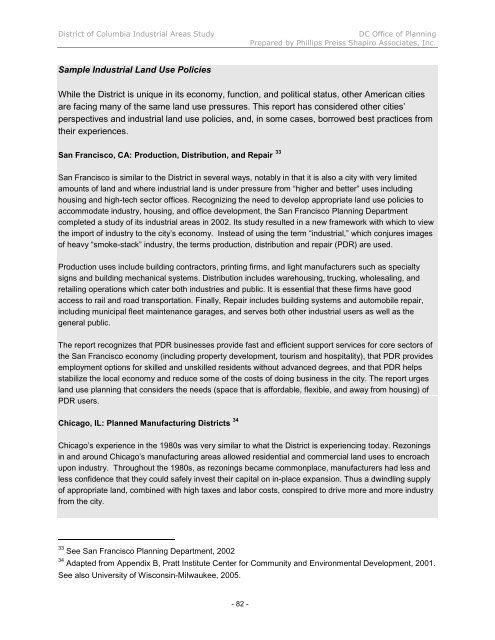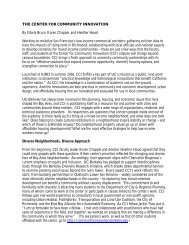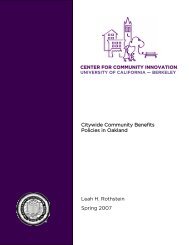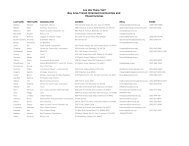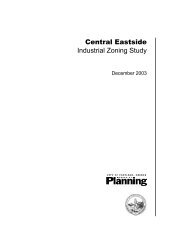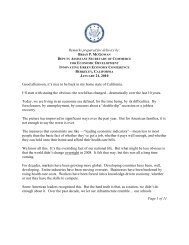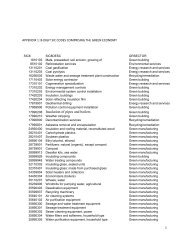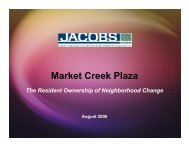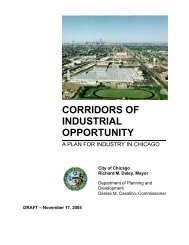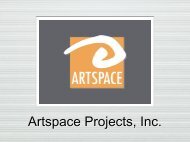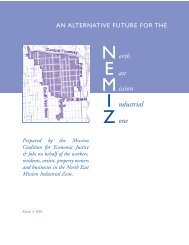INDUSTRIAL LAND IN A POST-INDUSTRIAL CITY District of ...
INDUSTRIAL LAND IN A POST-INDUSTRIAL CITY District of ...
INDUSTRIAL LAND IN A POST-INDUSTRIAL CITY District of ...
Create successful ePaper yourself
Turn your PDF publications into a flip-book with our unique Google optimized e-Paper software.
<strong>District</strong> <strong>of</strong> Columbia Industrial Areas Study DC Office <strong>of</strong> Planning<br />
Prepared by Phillips Preiss Shapiro Associates, Inc.<br />
Sample Industrial Land Use Policies<br />
While the <strong>District</strong> is unique in its economy, function, and political status, other American cities<br />
are facing many <strong>of</strong> the same land use pressures. This report has considered other cities’<br />
perspectives and industrial land use policies, and, in some cases, borrowed best practices from<br />
their experiences.<br />
San Francisco, CA: Production, Distribution, and Repair 33<br />
San Francisco is similar to the <strong>District</strong> in several ways, notably in that it is also a city with very limited<br />
amounts <strong>of</strong> land and where industrial land is under pressure from “higher and better” uses including<br />
housing and high-tech sector <strong>of</strong>fices. Recognizing the need to develop appropriate land use policies to<br />
accommodate industry, housing, and <strong>of</strong>fice development, the San Francisco Planning Department<br />
completed a study <strong>of</strong> its industrial areas in 2002. Its study resulted in a new framework with which to view<br />
the import <strong>of</strong> industry to the city’s economy. Instead <strong>of</strong> using the term “industrial,” which conjures images<br />
<strong>of</strong> heavy “smoke-stack” industry, the terms production, distribution and repair (PDR) are used.<br />
Production uses include building contractors, printing firms, and light manufacturers such as specialty<br />
signs and building mechanical systems. Distribution includes warehousing, trucking, wholesaling, and<br />
retailing operations which cater both industries and public. It is essential that these firms have good<br />
access to rail and road transportation. Finally, Repair includes building systems and automobile repair,<br />
including municipal fleet maintenance garages, and serves both other industrial users as well as the<br />
general public.<br />
The report recognizes that PDR businesses provide fast and efficient support services for core sectors <strong>of</strong><br />
the San Francisco economy (including property development, tourism and hospitality), that PDR provides<br />
employment options for skilled and unskilled residents without advanced degrees, and that PDR helps<br />
stabilize the local economy and reduce some <strong>of</strong> the costs <strong>of</strong> doing business in the city. The report urges<br />
land use planning that considers the needs (space that is affordable, flexible, and away from housing) <strong>of</strong><br />
PDR users.<br />
Chicago, IL: Planned Manufacturing <strong>District</strong>s 34<br />
Chicago’s experience in the 1980s was very similar to what the <strong>District</strong> is experiencing today. Rezonings<br />
in and around Chicago’s manufacturing areas allowed residential and commercial land uses to encroach<br />
upon industry. Throughout the 1980s, as rezonings became commonplace, manufacturers had less and<br />
less confidence that they could safely invest their capital on in-place expansion. Thus a dwindling supply<br />
<strong>of</strong> appropriate land, combined with high taxes and labor costs, conspired to drive more and more industry<br />
from the city.<br />
33 See San Francisco Planning Department, 2002<br />
34 Adapted from Appendix B, Pratt Institute Center for Community and Environmental Development, 2001.<br />
See also University <strong>of</strong> Wisconsin-Milwaukee, 2005.<br />
- 82 -


